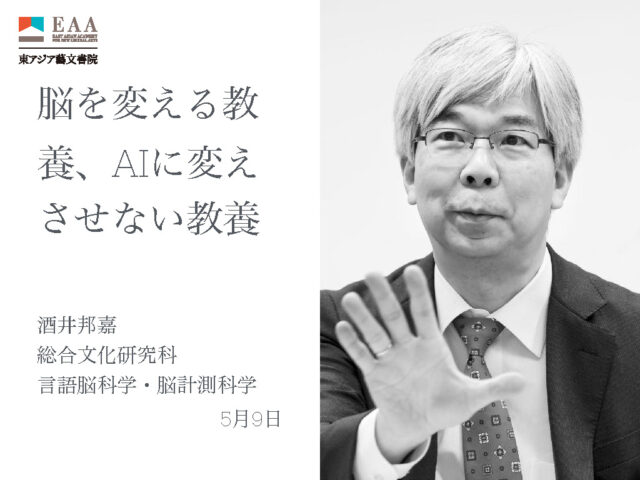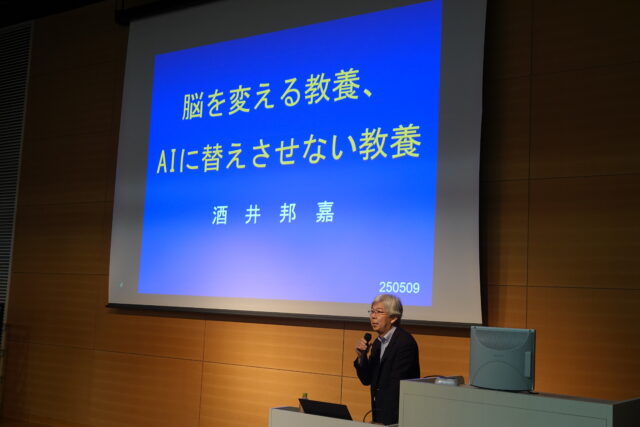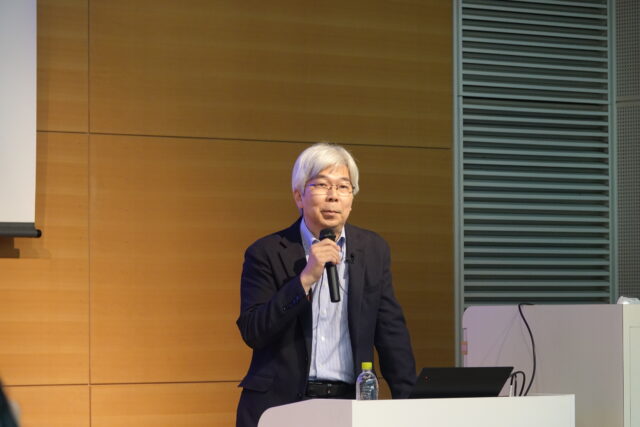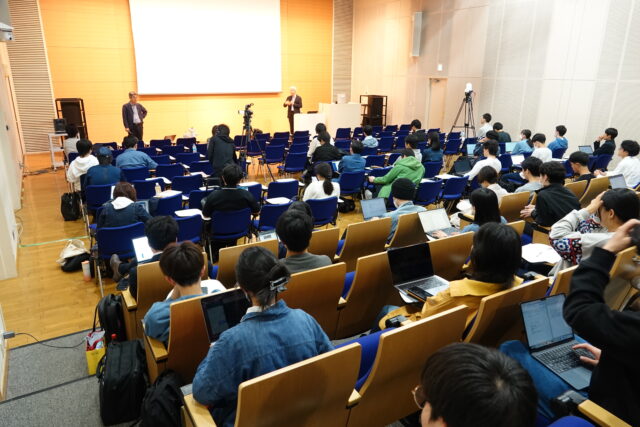
On May 9, 2025, the fifth session of the 2025 Academic Frontier Lecture Series, titled “Toward the World 30 Years from Now — The Changing Kyoyo, the Changeable Kyoyo” was held in Hall of Building 18. The guest lecturer was Professor Kuniyoshi Sakai from the Graduate School of Arts and Sciences at the University of Tokyo His lecture was titled “Kyoyo that Transforms the Brain, Not Those Transformed by AI.”

Professor Sakai argues that in today’s society, where artificial intelligence (AI) is widely utilized, humanity is facing a cognitive crisis: a fundamental threat to the human brain. People originally began using AI with the aim of “making things easier,” but under the exemption of “efficiency,” as a result, they are no longer using their brains. This phenomenon is particularly serious in education and creative fields, which he describes as a “Digital Brain Crisis.”According to Sakai, excessive reliance on the Internet and AI can lead to a decline in imagination and the ability to think critically. Furthermore, he says, it can undermine the relationship of trust between writers and readers, an important element of authentic human communication. As a countermeasure, he underscores the importance of regulating the use of AI, reviving the habit of reading, and rebuilding a cognitively rich environment.

Regarding the latter, Prof. Sakai explained the human brain’s inherent language ability from the perspective of brain science. The brain analyzes input information and synthesizes it through a mechanism called “universal grammar” to produce structured output. This internal structuring process links understanding and memory and forms the basis for imagination (interpretive power) and creativity (expressive power). In order to nurture creativity, a decade-long emotional education from early childhood is important, and whole-person education that cultivates universal skills through a single art is required. In the age of AI, sensitivity to discern context and flow, and a sense of what is truly original, are keys to creativity that transcends AI decision-making.
After the lecture, students actively engaged in discussions with the speakers on the ethical and practical aspects of using AI.

Report by Xi Zihan (EAA Research Assistant)








